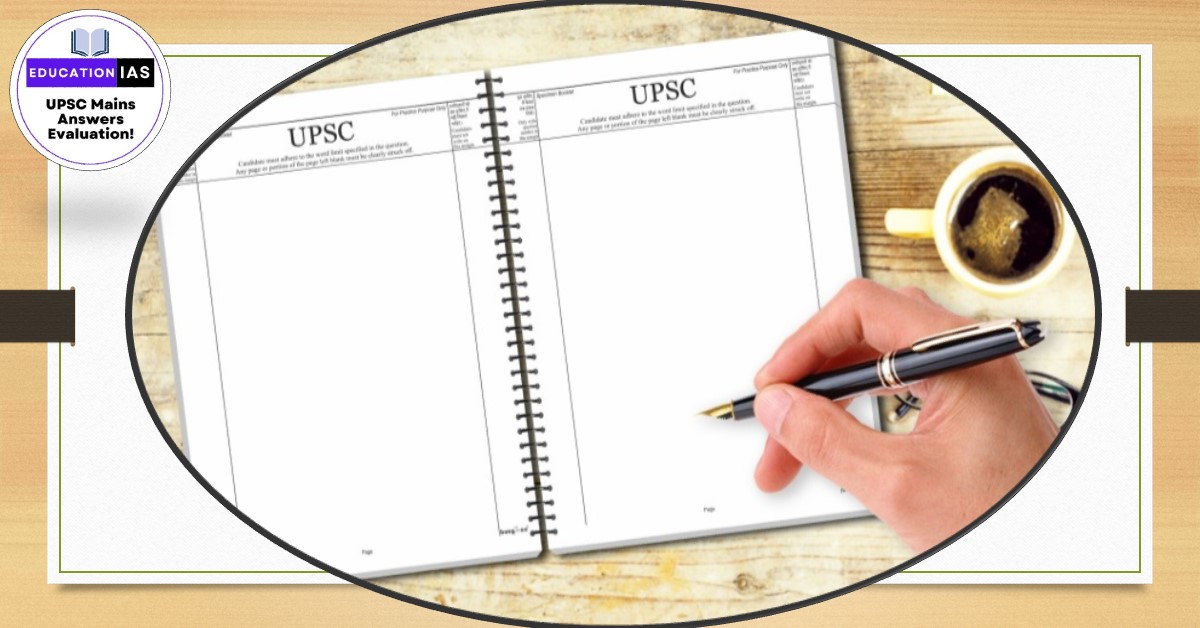Que. Examine the role played by the press in the early phase of the Indian national movement. Also, state the challenges faced by the Indian Press during the period.
भारतीय राष्ट्रीय आंदोलन के आरंभिक चरण में प्रेस द्वारा निभाई गई भूमिका का परीक्षण कीजिए। साथ ही, इस अवधि के दौरान भारतीय प्रेस के सामने आने वाली चुनौतियों का भी वर्णन कीजिए।
Structure of the Answer
(i) Introduction: Introduce the significance of the press in the early Indian national movement, highlighting its role in fostering awareness and unity.
(ii) Main Body: Discuss the contributions of the press to the national movement, including its role in information dissemination and shaping public opinion, alongside the challenges faced.
(iii) Conclusion: Summarize the press’s pivotal role in mobilizing public sentiment for independence, while acknowledging the obstacles that hindered its operations during this period.
Introduction
The press played a crucial role in the early phase of the Indian national movement, acting as a medium for political awareness, fostering unity among diverse communities, and shaping public opinion against colonial rule through various publications and journals.
Role of the Press in National Awareness
(i) Information Dissemination: Newspapers and journals like the “Hindu,” “Times of India,” and “Bengal Gazette” provided crucial information about national events, fostering awareness among the masses about colonial policies and injustices faced by Indians.
(ii) Catalyst for Unity: The press helped unify various social, religious, and linguistic groups by presenting common issues, thereby promoting a collective Indian identity and fostering a sense of nationalism among diverse communities.
(iii) Awakening Political Consciousness: Articles and editorials raised awareness about the need for political reforms, encouraging educated Indians to engage in discussions about self-governance and democratic rights, thus awakening political consciousness among the populace.
(iv) Formation of Public Opinion: The press served as a platform for debates and discussions on socio-political issues, significantly influencing public opinion against colonial rule and galvanizing support for nationalistic movements and organizations.
(v) Promotion of Nationalist Ideologies: Newspapers published works by prominent leaders like Bal Gangadhar Tilak, who used the press to advocate for “Swaraj” (self-rule), instilling a sense of pride and urgency among Indians for independence.
Press as a Tool for Mobilization
(i) Mobilizing Masses for Movements: The press played a crucial role in mobilizing public support for movements like the “Swadeshi Movement” and the “Non-Cooperation Movement,” encouraging participation in protests and boycotts against British goods.
(ii) Coverage of National Events: The press provided extensive coverage of significant events, such as the “Partition of Bengal” in 1905, mobilizing public sentiment against British policies and galvanizing the Indian populace into action.
(iii) Advocacy for Rights and Reforms: Newspapers highlighted social issues, advocating for rights and reforms, such as women’s rights, education, and workers’ rights, creating a discourse on justice and equality.
(iv) Raising Awareness on Economic Exploitation: The press exposed economic exploitation by British rule, discussing issues like high taxation, famines, and unemployment, further solidifying anti-colonial sentiments among the Indian masses.
(v) Highlighting Voices of the Marginalized: The press also provided a platform for marginalized communities to voice their concerns, ensuring their issues were part of the national discourse and thereby fostering a sense of inclusivity.
Challenges Faced by the Indian Press
(i) Repressive Measures by the British: The British government imposed various restrictions on the press, including censorship, leading to the “Vernacular Press Act” of 1878, which sought to control and suppress dissenting voices.
(ii) Intimidation and Harassment: Journalists and editors faced intimidation, harassment, and imprisonment for publishing anti-government articles, which curtailed the freedom of expression and limited the press’s ability to criticize colonial policies.
(iii) Economic Challenges: Many publications struggled financially due to government restrictions, leading to closures of numerous newspapers and journals that were vital for the nationalist movement.
(iv) Limited Access to Resources: The lack of access to modern printing technology and resources hampered the growth and outreach of the press, limiting its ability to disseminate information widely.
(v) Fragmentation of the Press: The proliferation of vernacular publications often led to fragmentation within the press, making it challenging to present a unified nationalist front, as different languages catered to different regions and communities.
Conclusion
The Indian press significantly contributed to the early national movement by fostering awareness and mobilizing public opinion against colonial rule. However, it faced considerable challenges, including repression, censorship, and economic constraints, hindering its full potential.
